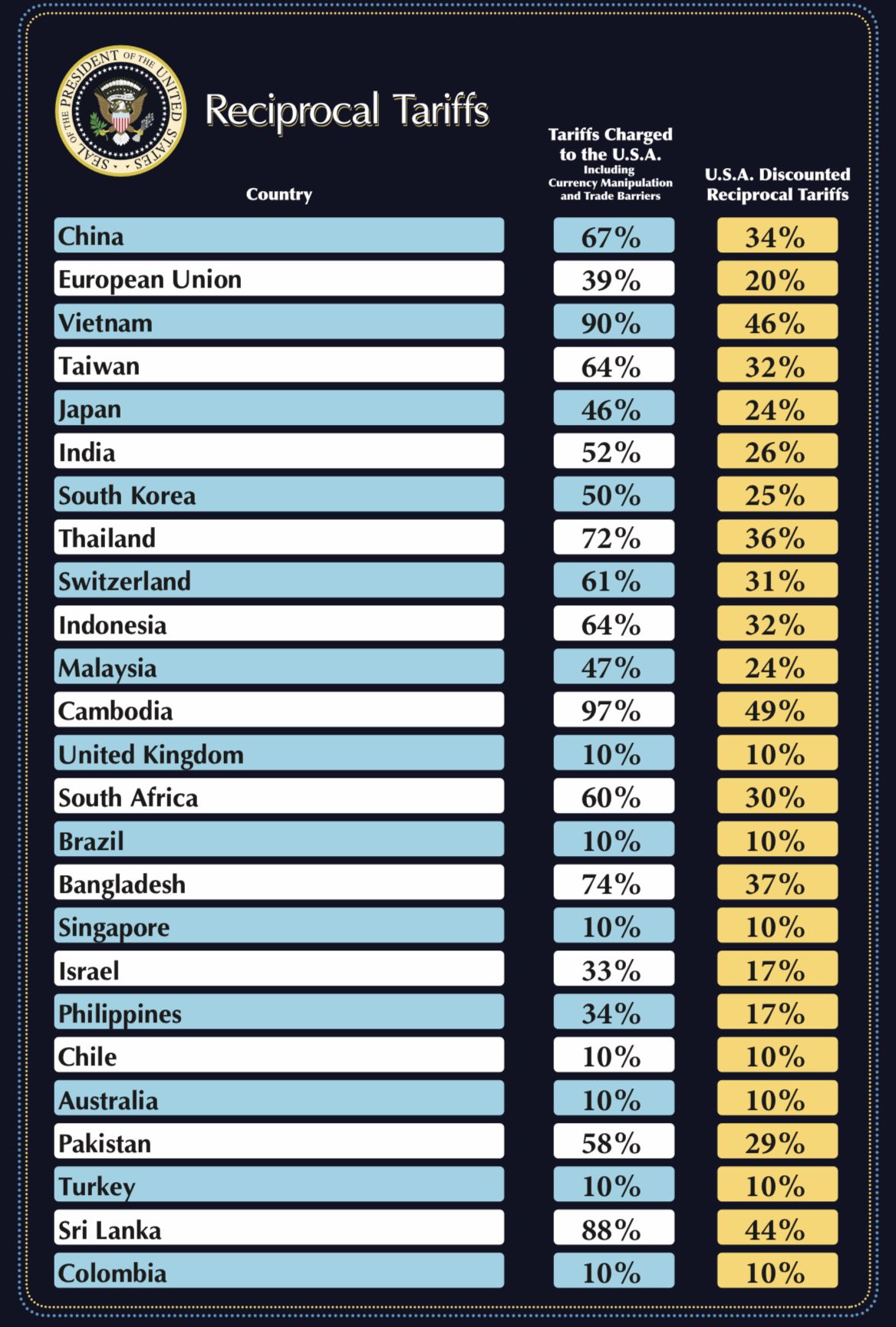US President Donald Trump on Wednesday announced far-reaching new tariffs on nearly all US trading partners — a 34 per cent tax on imports from China, 26 per cent on India and 20 per cent on the European Union, among others — that threaten to dismantle much of the architecture of the global economy and trigger broader trade wars.
Trump, in a Rose Garden announcement, said he was placing elevated tariff rates on dozens of nations that run meaningful trade surpluses with the United States, while imposing a 10 per cent baseline tax on imports from all countries in response to what he called an economic emergency.
The president, who said the tariffs were designed to boost domestic manufacturing, used aggressive rhetoric to describe a global trade system that the United States helped to build after World War II, saying “our country has been looted, pillaged, raped and plundered” by other nations.
The US President also called it “one of the most important days... in American history.” He added that the move was the United States’ “Declaration of Economic Independence.” Raising the slogan “Make America Wealthy Again,” Trump claimed that for years, hard-working American citizens were forced to sit on the sidelines, but now it's their time to prosper.
The action amounts to a historic tax hike that could push the global order to a breaking point. It kickstarts what could be a painful transition for many Americans as middle-class essentials such as housing, autos and clothing are expected to become more costly, while disrupting the alliances built to ensure peace and economic stability.
Trump said he was acting to bring in hundreds of billions in new revenue to the US government and restore fairness to global trade. “Taxpayers have been ripped off for more than 50 years,” he said. “But it is not going to happen anymore.” Trump declared a national economic emergency to levy the tariffs. He has promised that factory jobs will return to the United States as a result of the taxes, but his policies risk a sudden economic slowdown as consumers and businesses could face sharp price hikes.
Trump was fulfilling a key campaign promise as he imposed what he called “reciprocal” tariffs on trade partners, acting without Congress under the 1977 International Emergency Powers Act. But his action Wednesday could jeopardise Trump's voter mandate in last year's election to combat inflation.
(Inputs From AP)






